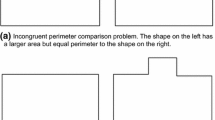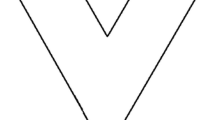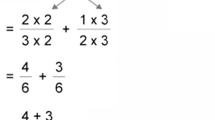Abstract
Limitations of working memory are proposed as a major determinant of problem difficulty in the THOG task. This task is a logical reasoning task which uses an exclusive disjunction and requires hypothetico-deductive reasoning. Four experiments with students of mathematics or psychology were used to test the hypotheses that, first, guiding participants' attention facilitates the task and, second, the use of paper and pencil as external problem representation reliefs working memory load. Focusing participants' attention upon a critical aspect of the task does not improve solution rates. Students of mathematics were better than students of psychology, but only if they were allowed to use paper and pencil or to work on the task repeatedly. These results partially support the working memory hypothesis. They point toward the importance of training and practice in relatively simple meta-cognitive skills in logical reasoning.
Similar content being viewed by others
Author information
Authors and Affiliations
Additional information
Received: 20 March 2000 / Accepted: 22 January 2001
Rights and permissions
About this article
Cite this article
Pfeiffer, T., Czech, T. Working memory limitation as a source of confusion in the abstract THOG task. Psychological Research Psychologische Forschung 65, 279–288 (2001). https://doi.org/10.1007/s004260100060
Issue Date:
DOI: https://doi.org/10.1007/s004260100060




